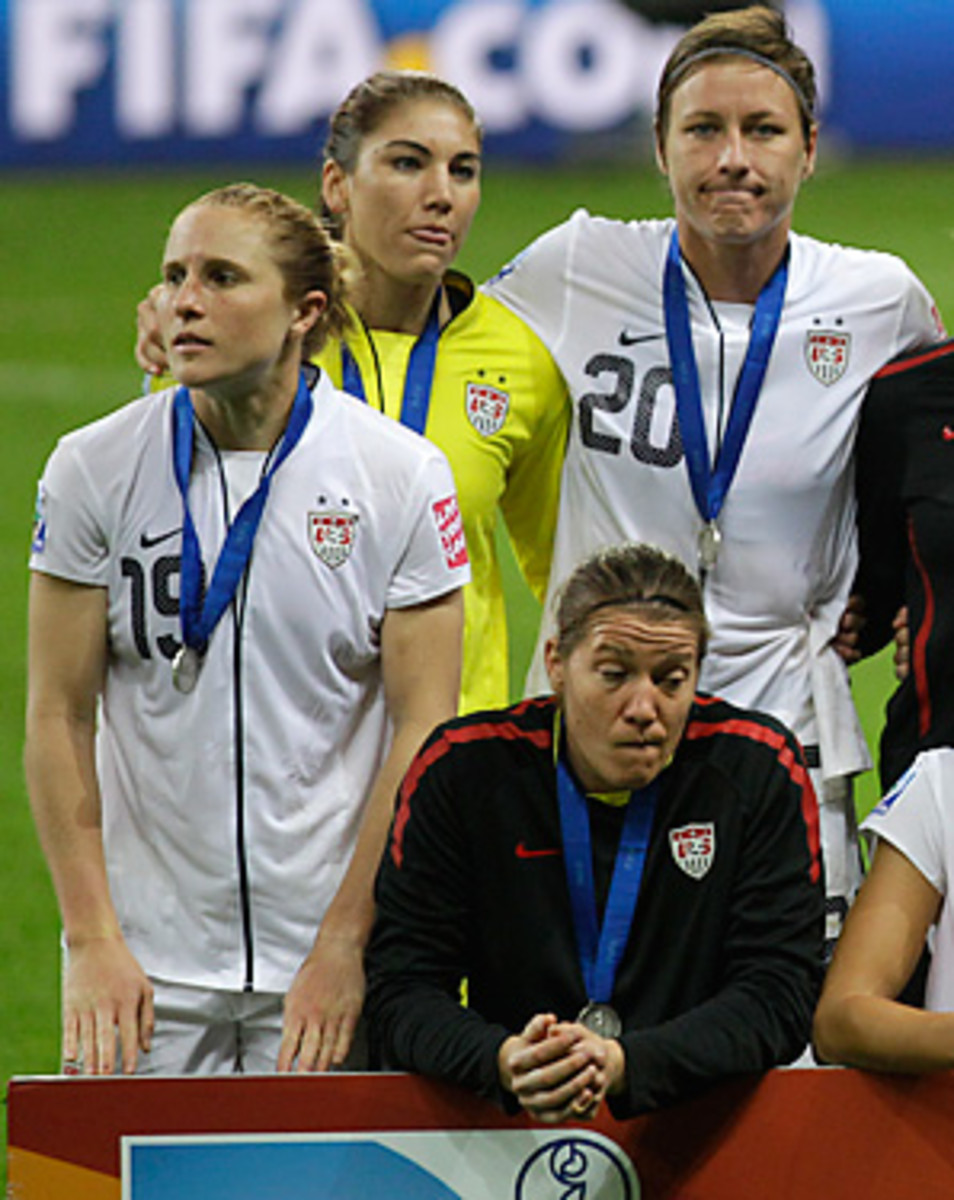In defeat, U.S. women progress, create new legacy at World Cup
And when it was over -- when resilient Japan had come back not once but twice from a one-goal deficit, when the U.S. players couldn't convert even one of their first three penalty kicks, when Japan beat the U.S. team for the first time in history -- there was an instantaneous 21st century reaction.
The U.S. women were ripped for choking away the game.
Harsh? Maybe.
But that's sports.
And ultimately, that's what the legacy of this Women's World Cup and this U.S. women's team is all about. About athletes playing their sport.
And that's the breakthrough.
That's their legacy. And it's enough.
This was another watershed moment in sports, another must-see event. But unlike that July day 12 years ago, this U.S. team's story is much more straightforward. They were not required to be pioneers or social activists or saviors.
WAHL: Postgame thoughts from USA-Japan
They were simply athletes playing in a thoroughly compelling, exceptionally watchable sporting event.
And that's progress.
The past dozen years have been a tough slog for the U.S. team, one that didn't get any easier by becoming the first Americans to lose in a World Cup final.
These players didn't blaze any trails. That wasn't their narrative. By the time this group came along, the path was already cleared, the signs posted, the direction well marked. Instead, it was their destiny to hike along in oversized boots, ones that sometimes caused blisters and pain. They were carrying someone else's legacy, and it wasn't always easy.
This 2011 World Cup was about creating their own legacy. Even in defeat, they did that.
In a World Cup of unexpected parity, the U.S. team didn't dominate. At times, they didn't even play particularly well. But their last-gasp effort against Brazil captured a nation's attention and, as in all good sporting events, we went along for the entertaining ride.
Indomitable Abby Wambach. Clutch Hope Solo. Sparkplug Megan Rapinoe. Speedster Alex Morgan. Athletes playing their sport.
In the past, women's teams were expected to do more than just play. They had to build a movement, change their culture, make history. This team is liberated from that.
Among the things this U.S. team does not have to do:
• Save a sport. Girls soccer in America doesn't need saving. It thrives at the youth level, in high school, in colleges. The current crop of teenagers, ones that can barely remember Mia Hamm or Brandi Chastain, love the sport and pack soccer fields around the country. If there's a boost in popularity, get ready: we're going to need to build more fields.
• Launch a professional league. Perhaps the World Cup popularity will supply some much-needed oxygen to the WPS, a struggling league that remains on life support. But in the past decade, we've learned the folly of trying to launch a league on the back of one spectacular international event. It takes more than a month of headlines to make the economics of a week in-week out league work.
• Shape a social movement. The main lesson from this World Cup is that women's sports are taking hold around the globe. National federations are investing money; established soccer clubs have women's teams. Television ratings were spectacular in several countries. The stadiums in Germany were sold out. The level of play was generally excellent. Anyone who watched in 1999 and then this year feels like they just witnessed a time-space compression.
• Be held up as morally superior. There was a bit of that in recent days in the media: opinions that these women were nicer, friendlier, better teammates, more gracious than their male counterparts. That's the kind of canonization we heard a lot of back in 1999. And it's easy pickings during lockouts of two professional men's leagues.
But anyone making those comparisons does so at their own peril. We have plenty of gracious, determined male champions these days: Dirk Nowitzki, Aaron Rodgers, Rafael Nadal, NLCS MVP Cody Ross. And the core of the U.S. women's team was involved in one of the more spectacular team rifts in recent memory four years ago. What they did prove is that teams can overcome the past and remake their legacy.
These players are worthy role models. Athletes -- of either gender - are always examples for kids. Now young girls have a new group of players to admire, ones that look like them. There are new dreams about playing in big stadiums, hoisting trophies.
Twelve years ago, several of today's U.S. players were sitting in the stands in New Jersey, Chicago, Stanford, Pasadena, with their faces painted red-white-and-blue. Twelve years from now, some girls who were enthralled by the past month will be wearing the United States uniform. The inspiration is passed on. The progress continues.
On a summer Sunday afternoon, millions of people stopped in their tracks because of the U.S. women's soccer team.
To watch them play. To be riveted to the drama of sports.
That's legacy enough.





